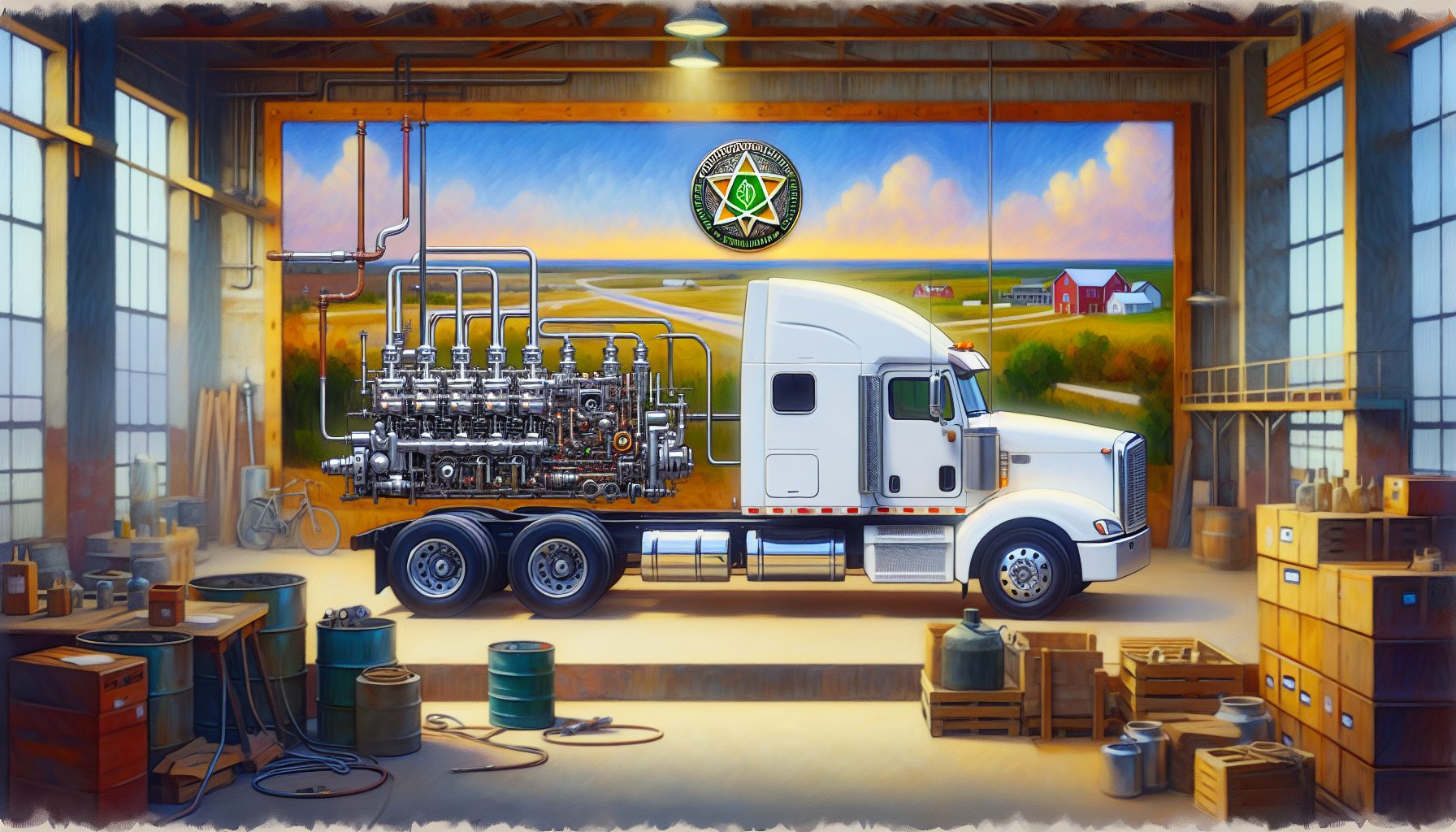A Minnesota-based startup is tackling pollution by converting diesel engines to run on ammonia. This innovative switch is their strategy to pare down their environmental footprint through a cleaner diesel alternative.
Ammonia, a compound of nitrogen and hydrogen, does not produce carbon emissions when burned in the engine, significantly reducing its global warming impact. It’s abundant and easily accessible, making it a sustainable diesel substitute.
This progressive really could transform engine technology, demonstrating the growing shift toward eco-friendly transport solutions. The concept of using ammonia as a fuel source is gaining traction, with more organizations acknowledging its benefits for a less fossil fuel-reliant future.
Seamus Kane, the CEO of the startup, assures that converting diesel engines to use ammonia is not as complex as it sounds. The company is even developing retrofit kits to simplify the process, which could eventually reduce carbon emissions. Kane emphasizes sustainability and business growth as their main driving forces.
While ammonia combustion does not emit carbon, its production contributes about 2% of global carbon emissions annually, primarily from the energy-consuming Haber-Bosch process used during ammonia production. Research is underway to develop cleaner ammonia production methods, like enzyme-based biological processes, as an alternative to this method. The arrival of green hydrogen could encourage sustainable ammonia production, substantially reducing its environmental imprint.
Normally, ammonia is most commonly used as a liquid fertilizer, accounting for about 70% of its production.
Minnesota startup’s green shift: diesel to ammonia
Despite its agricultural use, it is also a refrigerant, cleaner, and historically was tested as a transportation fuel. Its versatility is vast, even serving as a raw material for producing plastic, synthetic fibers, explosives, and dyes. But despite its positives, it’s crucial to acknowledge ammonia’s potential health risks, consequently, safety protocols are essential during its production and use.
Various businesses see ammonia as more than a combustible fuel. They are evaluating its potential as a hydrogen carrier, another clean energy option. These explorations involve two aspects: its use as a combustible fuel offering a cleaner alternative to standard fossil fuels, and its application as a hydrogen carrier. These trials could pave the way for a more sustainable, eco-friendly future.
The Minnesota startup’s endeavor to adapt diesel engines to burn ammonia could be crucial to the shift toward cleaner energy technologies. Through their innovations, they’re leading the way to a greener future by potentially lowering carbon emissions significantly. Their success could revolutionize energy consumption methods, steering the world onto a more sustainable path.









